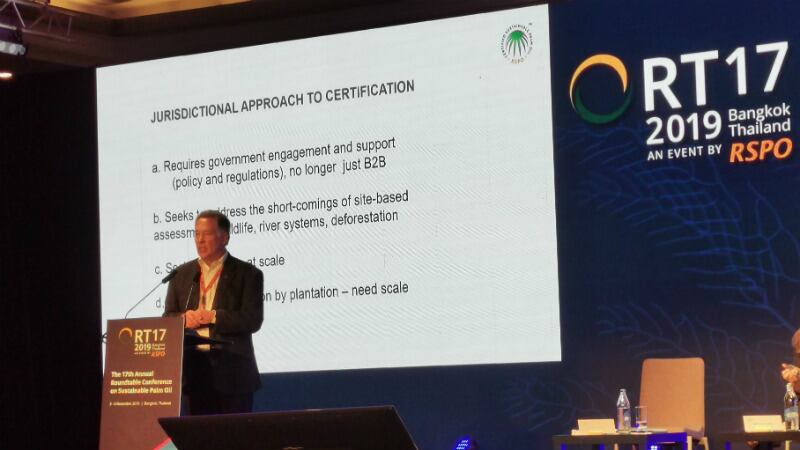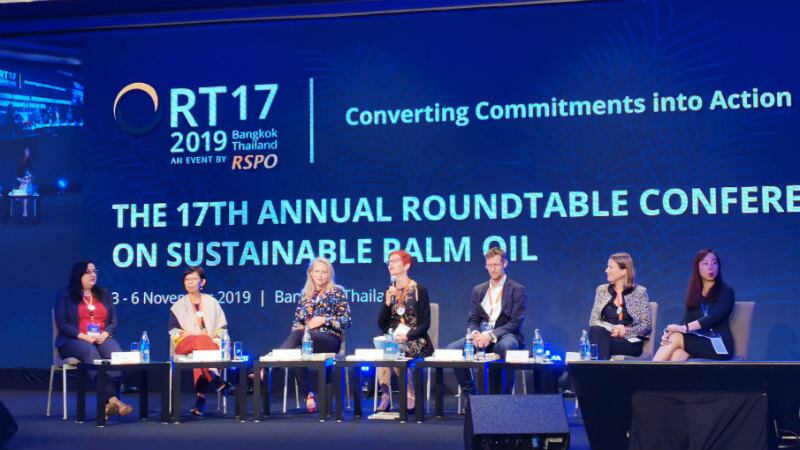The Roundtable for Sustainable Palm Oil (RSPO) Jurisdictional Transformation Working Group looks at getting palm oil to be certified as sustainable according to RSPO standards at this mass jurisdictional level, and according to the latest updates by the working group’s co-chair Dr Glyn Davies, case studies conducted at various levels have shown this to be possible.
“This concept of jurisdictional transformation is new – it means that [the movement to moving the industry towards RSPO-certified sustainable palm oil (CSPO) is no longer just voluntary or based on a business-to-business (B2B) basis, it now involves the government,” he told the audience at the recent RSPO RT17 event in Bangkok.
“Three case studies at district level (Seruyan, Central Kalimantan, Indonesia), state level (Sabah, Malaysia) and country level (Ecuador) have been conducted, and these have helped to keep things real and also source wisdom from the ground. [Some central issues that popped up] revolved around smallholder farmers and the specific role of governments.”
More analysis will be conducted into jurisdictional transformation, but Davies acknowledged that there are still many trials that lie ahead.
“There are multiple challenges involved here, especially as we all know businesses do not like government to get involved in their affairs,” he said.
“Yet, there is a clear wish for there to be a level playing field [when it comes to sustainable palm oil], and the government is the only entity that can provide overall governance, regulations and frameworks to help prevent the ‘leakage’ of bad influences and help everyone to reach a similar standard.
“There is no clear framework yet of how to reward those that do well, for example for buyers to buy more CSPO, but we do know that transparency is the first step because although the government plays a key role in jurisdictional transformation, the entire process is a multi-stakeholder one.”
Multinational conglomerate Unilever is a big proponent of the jurisdictional approach. The company works with local governments in Malaysia and Indonesia to implement this at a district level.
Urgency and ‘climate emergency’
A key advantage of the jurisdictional approach to CSPO conversion is speed, as it would involve widespread conversion at large scale at once – and speed is of the essence now more than ever, according to Olam International Co-Founder and Group CEO Sunny George Verghese.
Delivering the RT17 keynote paper, Verghese emphasized that there is much less time available to make changes, both in and out of the palm oil industry, than analysts originally estimated.
“We’ve moved beyond being in a climate crisis to a climate emergency now – we thought we had 50 years to make changes, but now we know we only have 10 years,” he said.
“Modern devices make us feel comfortable so this climate emergency is not palpable on a daily basis, and cannot really be touched or felt, but it is very real.”





